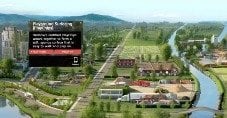Your yard is a very important natural resource that adds value to your home and enjoyment to your life. It contributes to a desirable, healthy community. Several important concepts will help you create an aesthetically pleasing, functional, and sustainable design.
The landscape design process includes the consideration of environmental conditions, your desires, and the elements and principles of design. The goal is to organize the natural and man-made features in your yard into an aesthetic, functional, and environmentally sustainable landscape.
The process begins with a site inventory and analysis of soil, drainage, climate conditions, and existing vegetation. This is a critical step for both plant selection and placement and locating family activities and functions. It's important because the same climate conditions that affect the plants—temperature, humidity, rain, wind, and sunlight—also affect you, the user. The next step is to make a list of your needs and desires—this helps you determine how your yard and landscape will be used. The site and user analyses will also help you establish a theme for the form and style of your design. The functional diagram is then used to locate the activity spaces on the site and from this diagram a conceptual plan is developed. The last step is a final design that includes all the hardscape and planting details that are necessary for installation.
When designing a residential landscape, the most important step is to put a plan on paper. In the article Landscape Design: Ten Important Things to Consider the author provides ten important points to ensure a stunning landscape design. We invite you to give this great resource a read!

